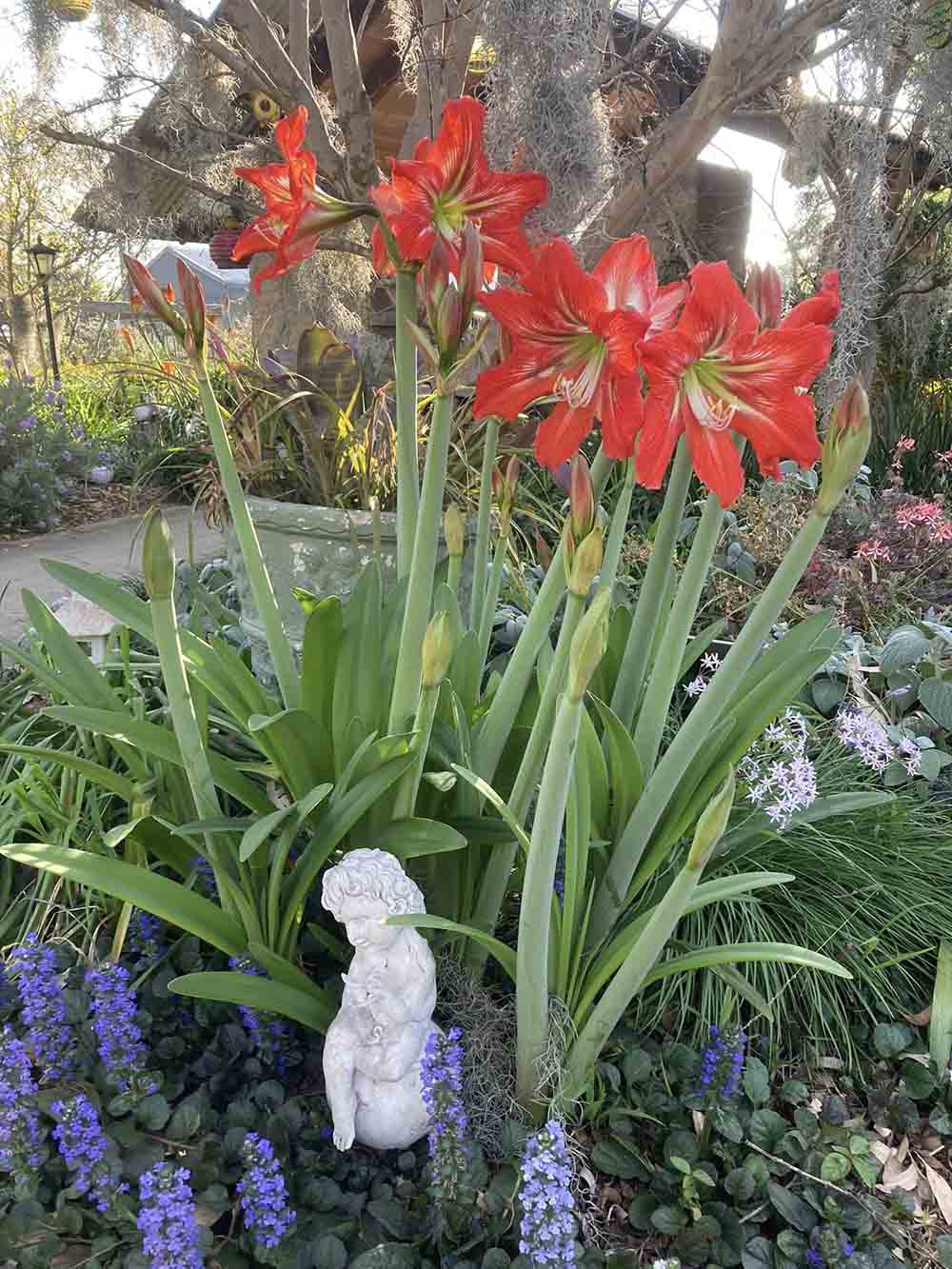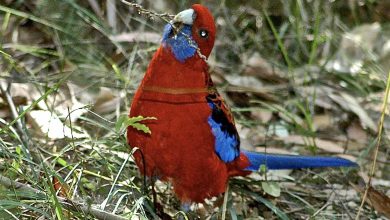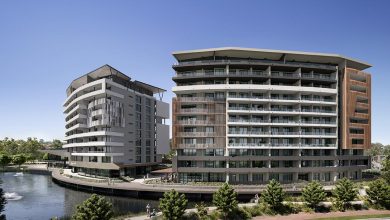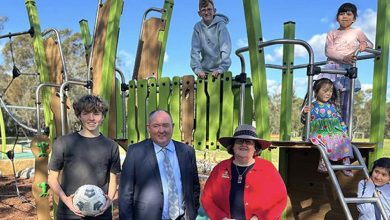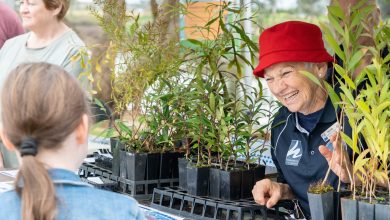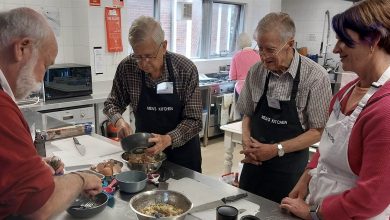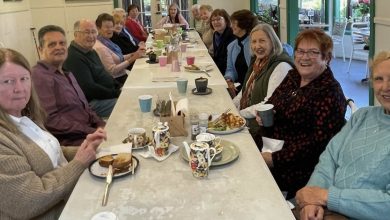The Secret Garden: It’s All About the Birds and the Bees!
By Penny Mckinaly
 Recently we held our annual Spring Fair in the grounds here at the Secret Garden, Richmond. The market stalls were very popular, but we noticed that plenty of people were after plants for bee and bird gardens.
Recently we held our annual Spring Fair in the grounds here at the Secret Garden, Richmond. The market stalls were very popular, but we noticed that plenty of people were after plants for bee and bird gardens.
It would seem that gardeners are getting onboard with creating gardens that attract both native bees, honey bees as well as other insects, and that attracts a whole lot of other wildlife into our backyards!
Bees are attracted to blossoms with plenty of pollen as well as brightly coloured flowers. We stock a great range of Lavenders, Rosemary, as well as the less well known native shrubs like Thryptomene and Baeckea.
The French Lavender, Italian and English are the most hardy and reliable small shrubs to go for! They usually last around 3 years and then tend to start to die off – just rip it out and start again! They enjoy full sun, a regular trim and keep them mulched and they will be happy! We carry the upright Rosemary ‘Tuscan Blue’ and the trailing variety – great for retaining walls as they love hot sun!!
Callistemons or Bottle Brush are reliable native flowering large shrubs and small trees. The red, white or pink flowers usually appear through the warmer months and they are much loved by councils for street trees – always a good indication of their toughness.
Citrus trees provide awesome scented spring blossoms which are very attractive to bees – the added bonus is the winter fruit which follows!! They are great for nesting birds also providing great cover and a steady supply of insects. Limes, lemons, oranges and mandarins are all available at the Secret Garden.
The Salvia species are brilliant for providing year round colour – except for the depths of winter. There are literally hundreds of varieties to hunt down, from pretty blues and mauves, to bold reds and pinks to subtle blush pink, whites and yellows. We are investing in building our stocks up of these cheery little guys – most stay less than 1m in height and provide great fodder for the bees and the birds.
All they need is a good prune at the end of winter, re mulch them, add a handful of Dynamic Lifter and they will take off! Don’t be timid with the prune – get into it!! By mixing your varieties you could have flowers for 8 months of the year!
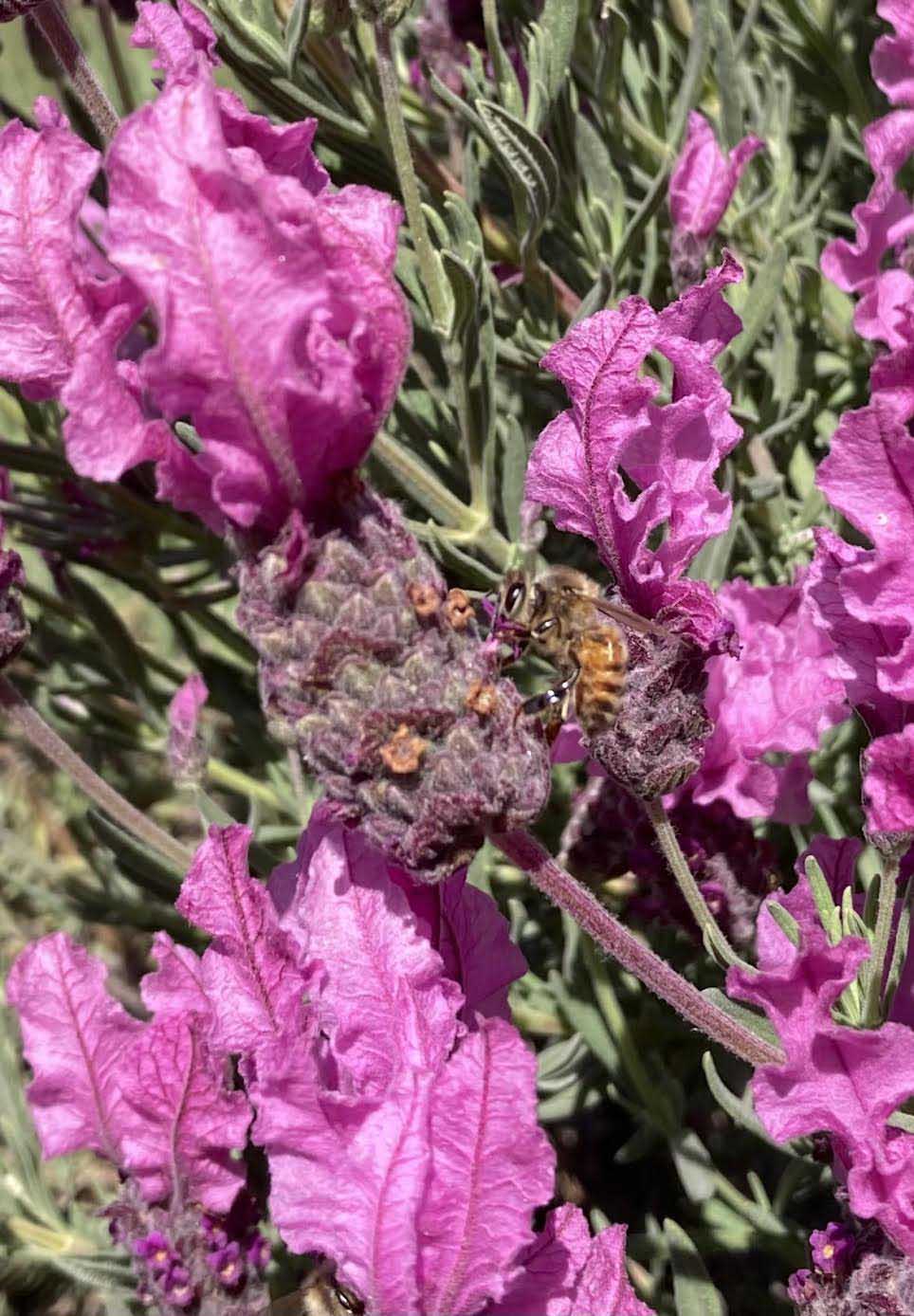
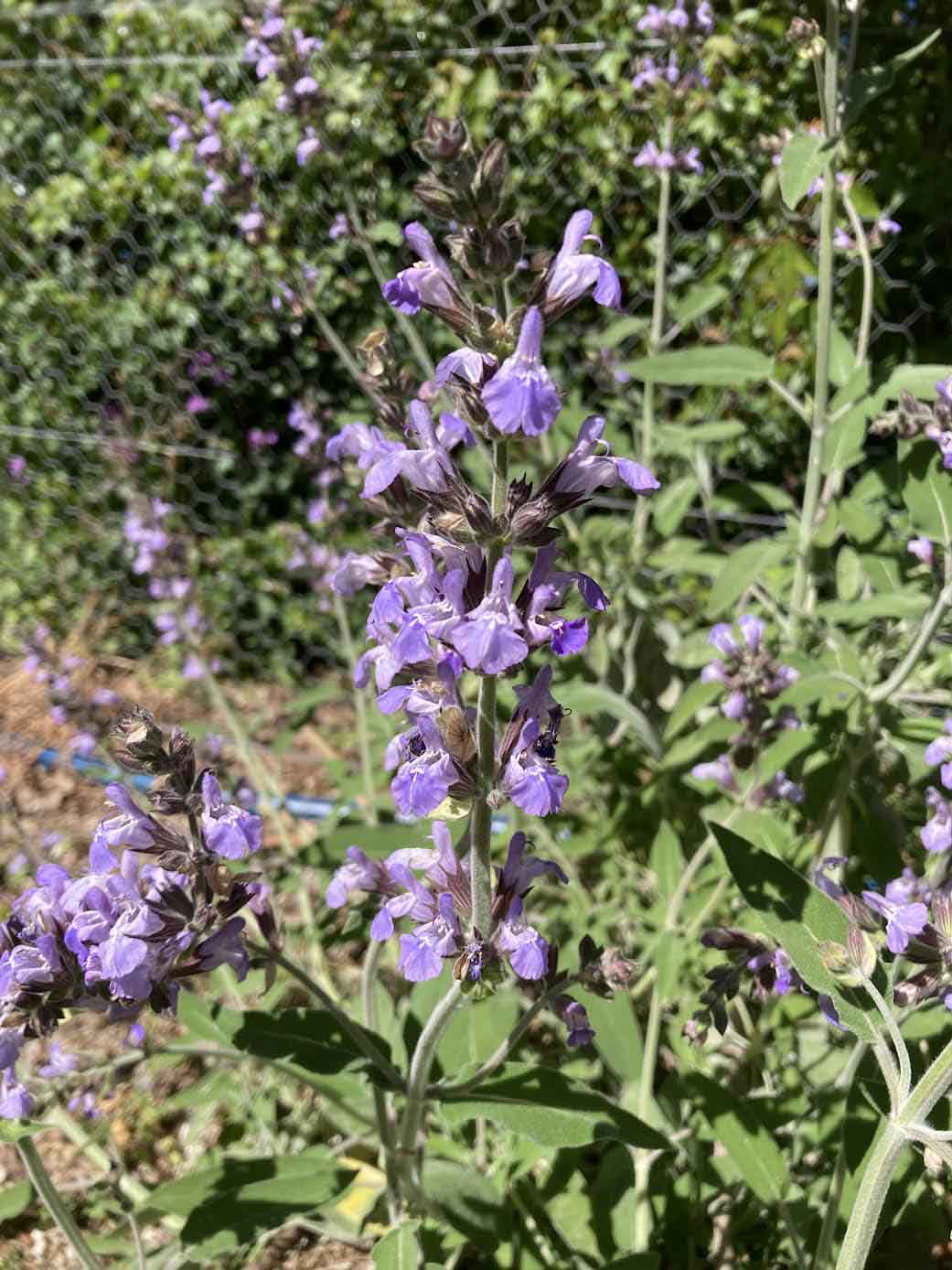
Another great way to encourage bees is to invest in a Bee Hotel. These are man made timber boxes specifically designed to allow native bees to colonise. Our Mates Shed at the Secret Garden builds them and they are one of our best sellers!
The Mates Shed is a place where all those with a disability can use their skills to build cool things using timber: so every Bee Hotel we sell helps turn their dreams into reality!! We fill ours with drilled out hardwood, short lengths of hollow bamboo and add various nooks and crannies. The bees are attracted to nest in them, which encourages them to stay around in your garden, feeding from the flowers and pollinating your veggies.
All of the above plants also attract birds, from Honeyeaters after nectar, to providing habitat for smaller birds. The more spiky foliaged natives provide a safe haven from the bigger birds, and enables smaller species to nest deep in the foliage. The flowers attract insects for small birds, and small trees allow bigger birds to nest just that little bit higher to escape predators like foxes and wild cats.
Both birds and bees require a steady supply of water – this only needs to be 10-20 deep for bees. You can add pebbles into your bird bath to create this shallower area for the bees to slurp up water while maintaining the deeper end for bird drinking and bathing. Or have several around – even better! With the warmer months upon us, top up every day and you will definitely have them visiting!
So next time you’re out and about in your neighbourhood, check out what the bees are interested in! Snap a pic, ask someone or google it, and invest in providing homes for our smallest residents in our gardens!
The Secret Gardener
You can find the Secret Garden at Western Sydney University, Hawkesbury Campus, Clydesdale Lane in Richmond. They are open from 9am to 4pm, Monday to Saturday.

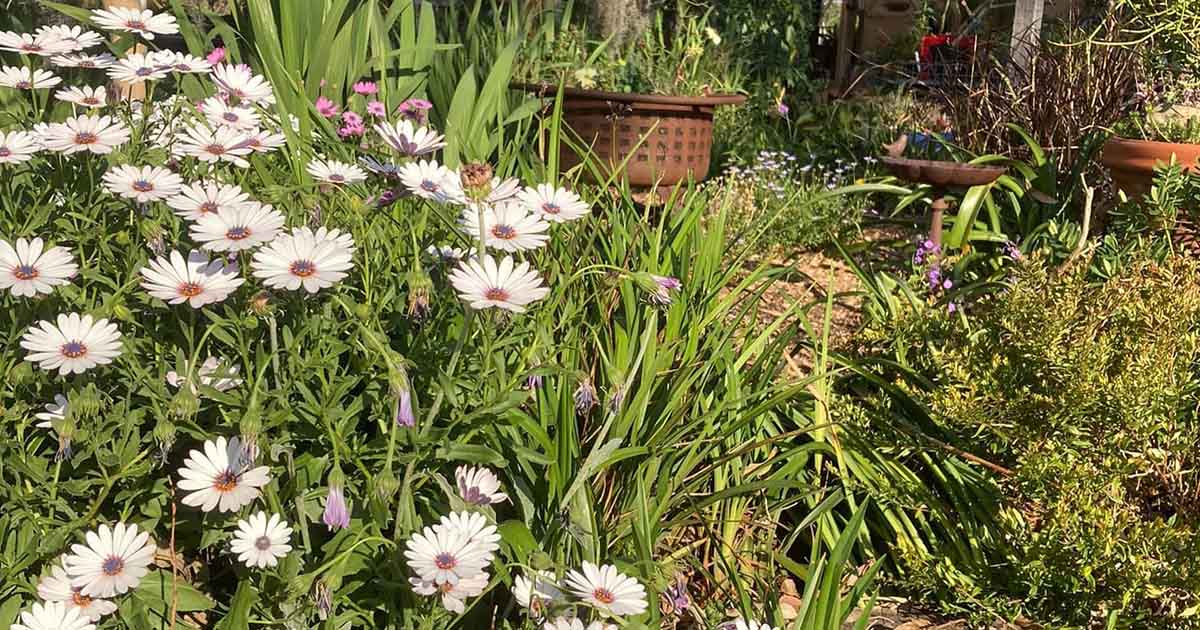 Recently we held our annual Spring Fair in the grounds here at the
Recently we held our annual Spring Fair in the grounds here at the 